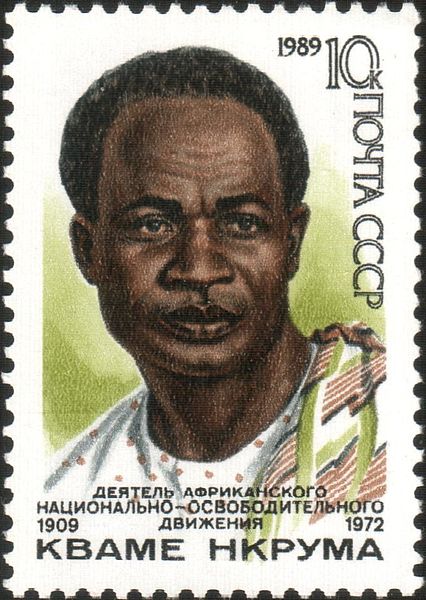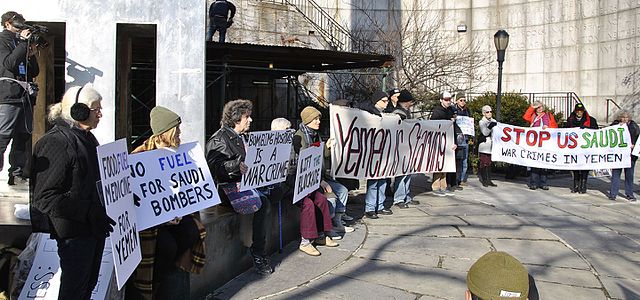Neocolonialism is the continuation or reimposition of imperialist rule by a state over another nominally independent state. This is the continuation of colonial representations and realities which remain after formal colonisation has come to an end. Neocolonialism is the control of less-developed countries by developed countries through indirect means. The term neocolonialism was first used after World War II to refer to the continuing dependence of former colonies on foreign countries, but its meaning soon broadened to apply, more generally, to places where the power of developed countries was used to produce a colonial-like exploitation.Neocolonialism takes the form of economic imperialism, globalization, cultural imperialism and conditional aid to influence or control a developing country instead of the previous colonial methods of direct military control or indirect political control (hegemony).

Kwame Nkrumah (pictured on a Soviet postage stamp), president of Ghana (1960–1966), coined the term "neocolonialism".
People in Brisbane protesting Australia's claim on East Timorese oil, in May 2017
Protest against U.S. involvement in the military intervention in Yemen, New York City, 2017
Combined Air and Space Operations Center (CAOC) at Al Udeid Air Base in Qatar, 2015
The theory of imperialism refers to a range of theoretical approaches to understanding the expansion of capitalism into new areas, the unequal development of different countries, and economic systems that may lead to the dominance of some countries over others. These theories are considered distinct from other uses of the word imperialism which refer to the general tendency for empires throughout history to seek power and territorial expansion. The theory of imperialism is often associated with Marxist economics, but many theories were developed by non-Marxists. Most theories of imperialism, with the notable exception of ultra-imperialism, hold that imperialist exploitation leads to warfare, colonization, and international inequality.
Karl Marx did not write about imperialism directly, but inspired many later theories.
Like many liberals, Hobson's objection to imperialism was strengthened by his disgust at the imbalance of power in the Boer War.
A modern steamboat and primitive rafts in the Chilean port of Huasco in the 1850s illustrate the concept of uneven development.
Hilferding cited the Rock Island Railroad Company as a typical concentration of finance capital.








